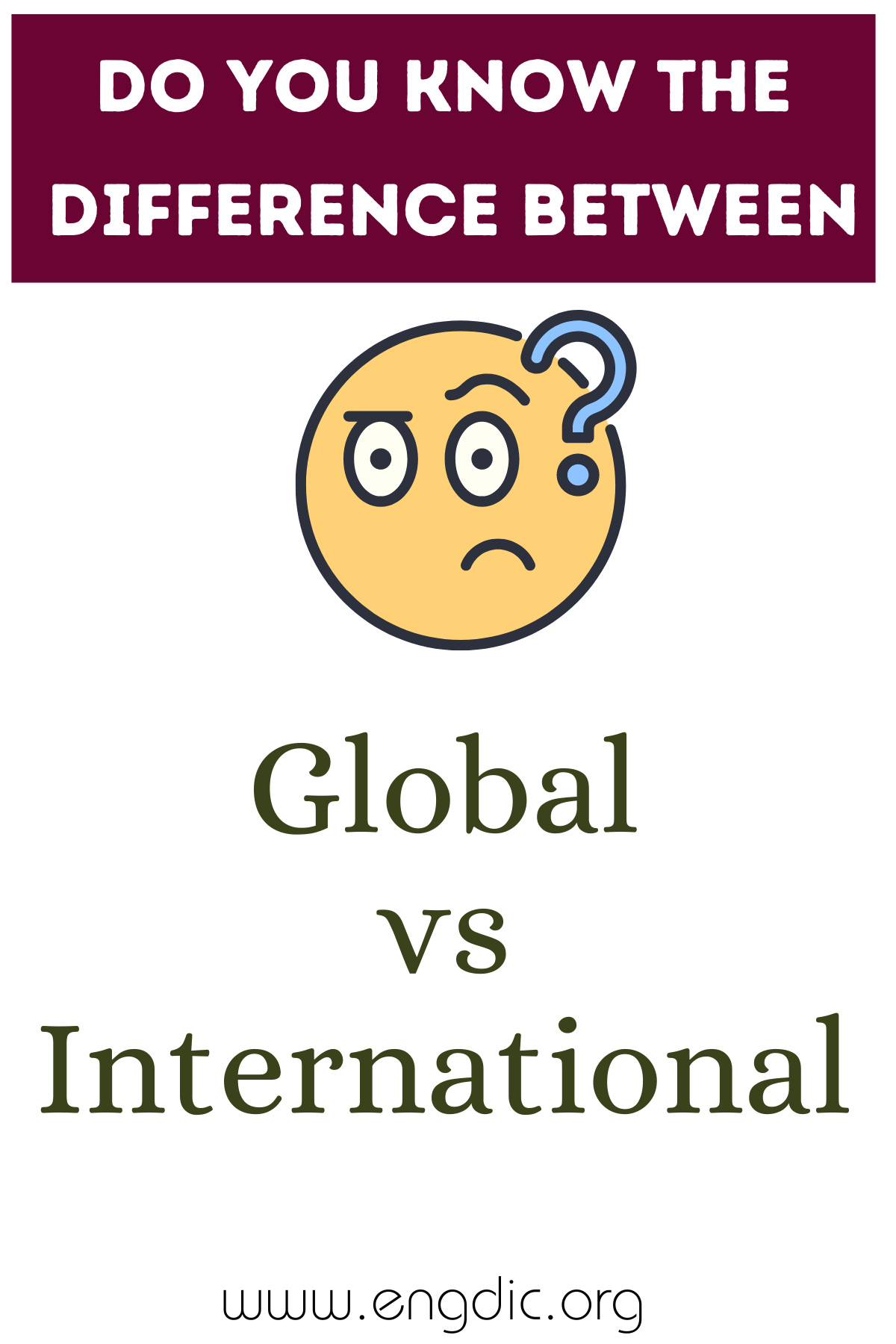“Global” and “International” both refer to connections beyond national boundaries, but they have subtle distinctions.
- “Global” pertains to worldwide aspects that involve or affect the entire world, implying a holistic or planetary scale.
- “International” focuses on relationships or interactions between two or more nations.
While global concerns transcend borders, international issues are often bilateral or multilateral.
For instance, climate change is a global challenge, while trade agreements are usually international. Understanding these nuances helps navigate discussions on topics ranging from business to politics.
Global
Definition: The term “global” relates to the entire world or something that encompasses the whole globe.
Usage:
- Business: Companies that operate on a global scale have a presence in multiple countries and adapt their strategies to different markets.
Example: “The global company adjusts its product lines to meet regional demands.” - Environmental Issues: Global issues, like climate change, affect the entire planet and require worldwide cooperation to address. Example: “Global warming requires countries to collectively reduce greenhouse gas emissions.”
- Economy: The global economy refers to the interconnected economies of different nations, where economic shifts in one region can impact others. Example: “The 2008 financial crisis had a significant impact on the global economy.”
International
Definition: “International” refers to relationships, activities, or issues that involve multiple nations or occur between countries.
Usage:
- Law: International laws are rules established between nations to regulate behavior on issues like trade, human rights, and environmental protection.
Example: “The International Criminal Court prosecutes war crimes and crimes against humanity.” - Business: International business operations involve cross-border transactions, focusing on markets and regulations of specific countries.
Example: “The company manages international trade with suppliers in Asia.” - Travel: International travel involves crossing borders and requires adherence to the entry and exit regulations of different countries. Example: “International travelers need passports and visas for certain destinations.”
Understanding the distinction between “global” and “international” is crucial for accurate communication in discussions involving commerce, law, and geopolitics.







